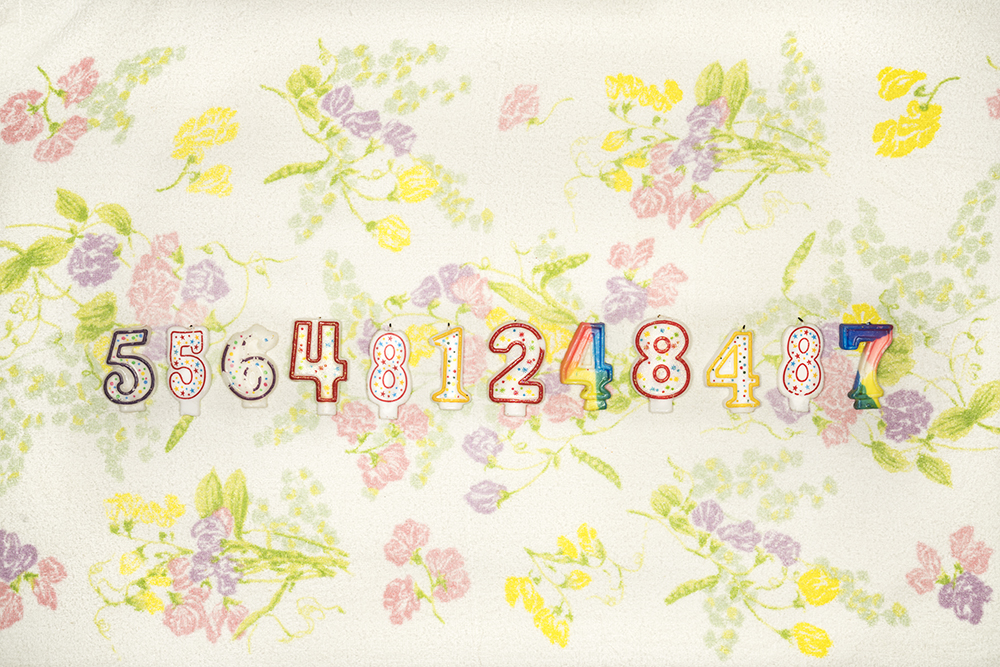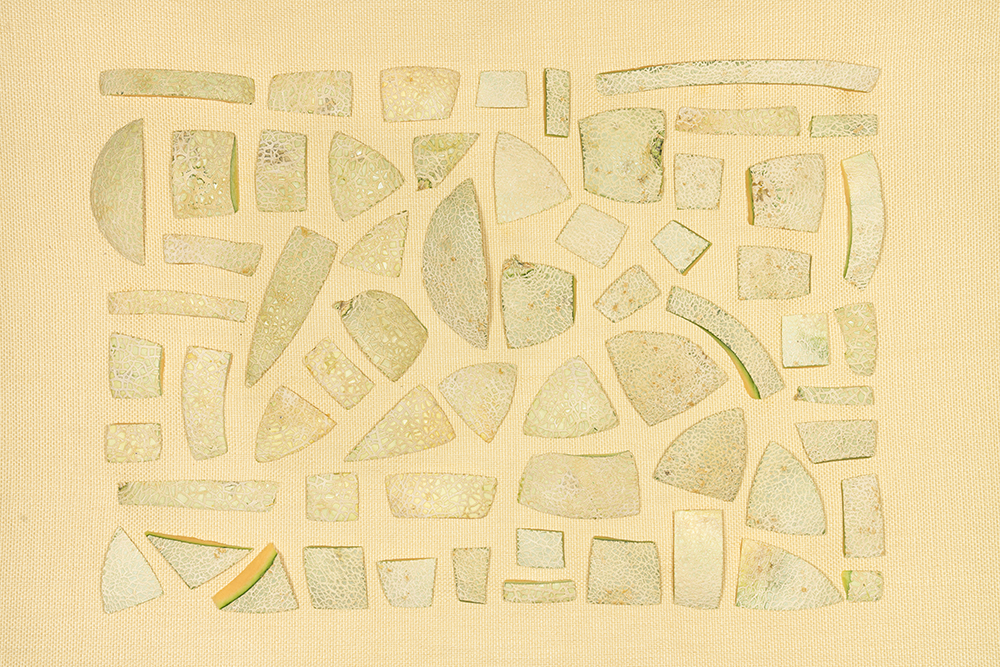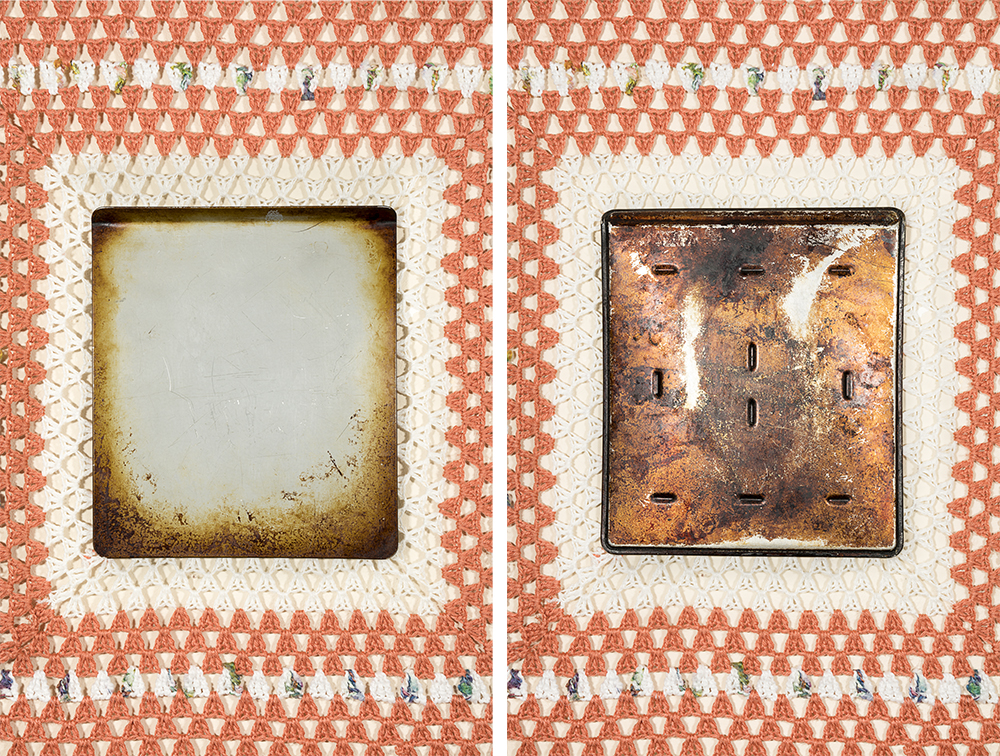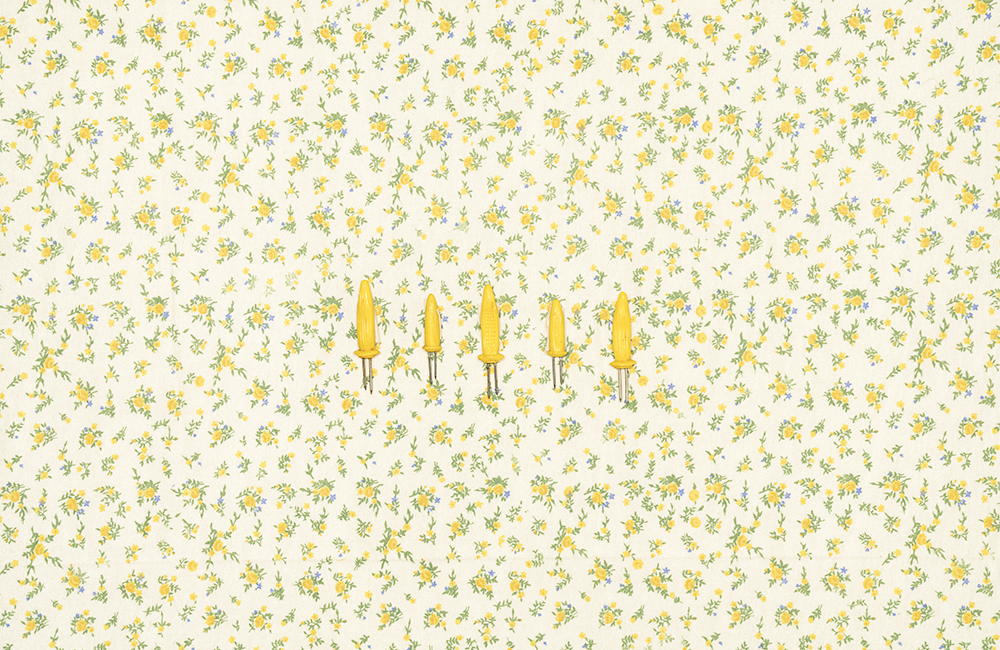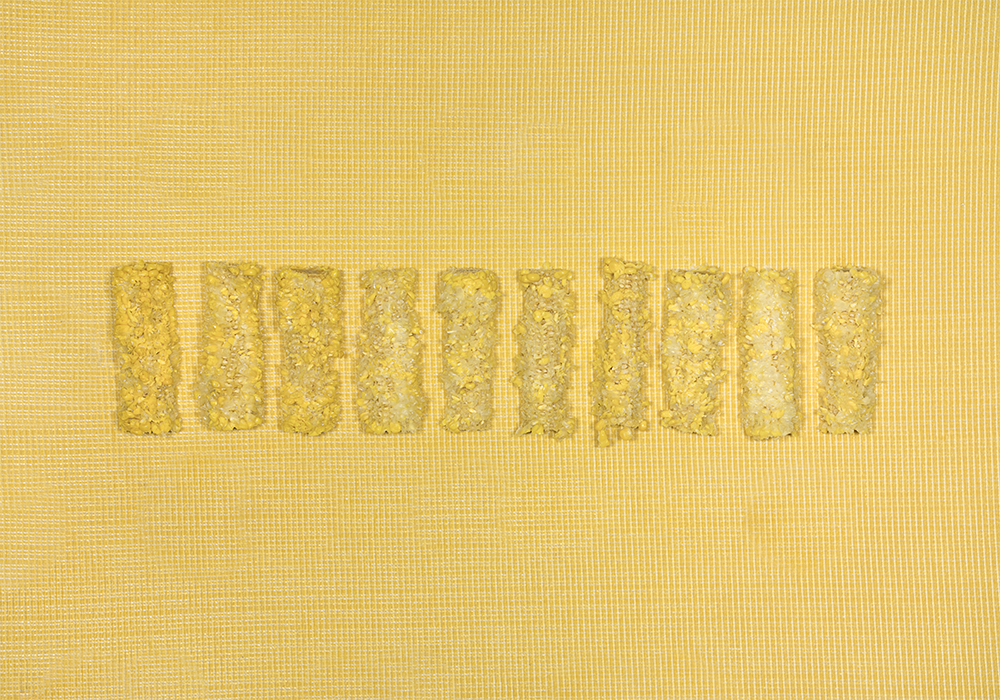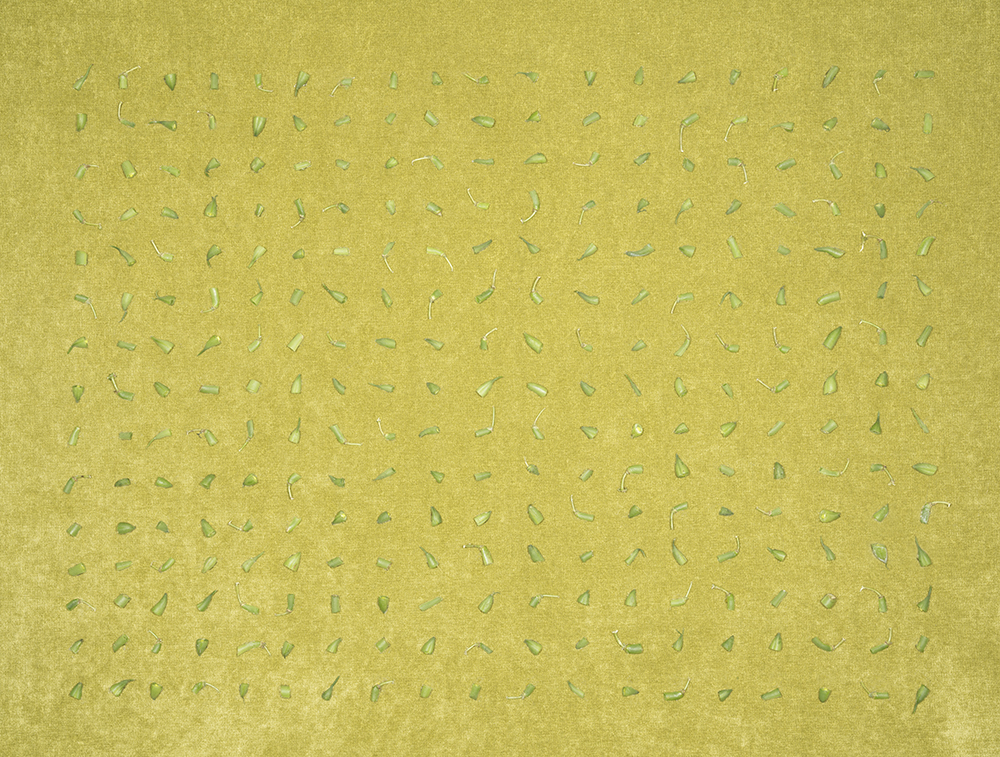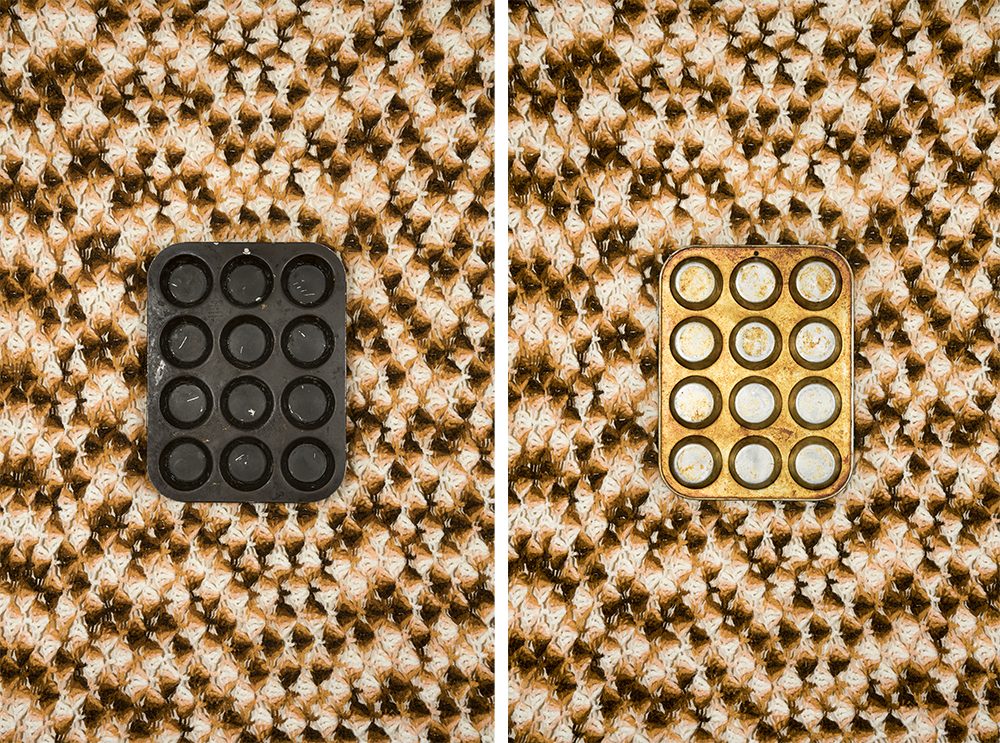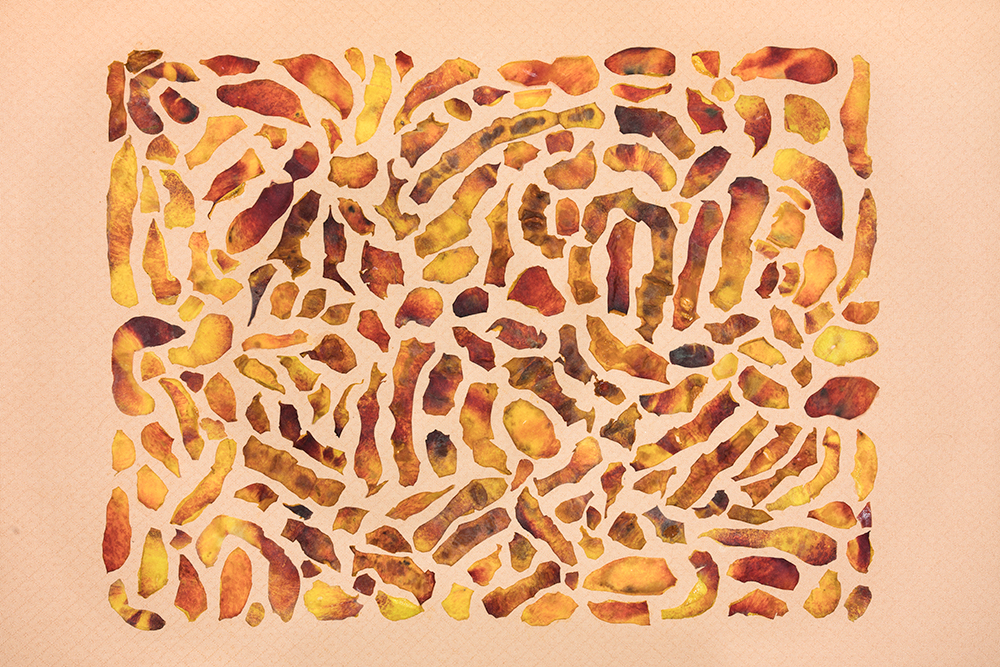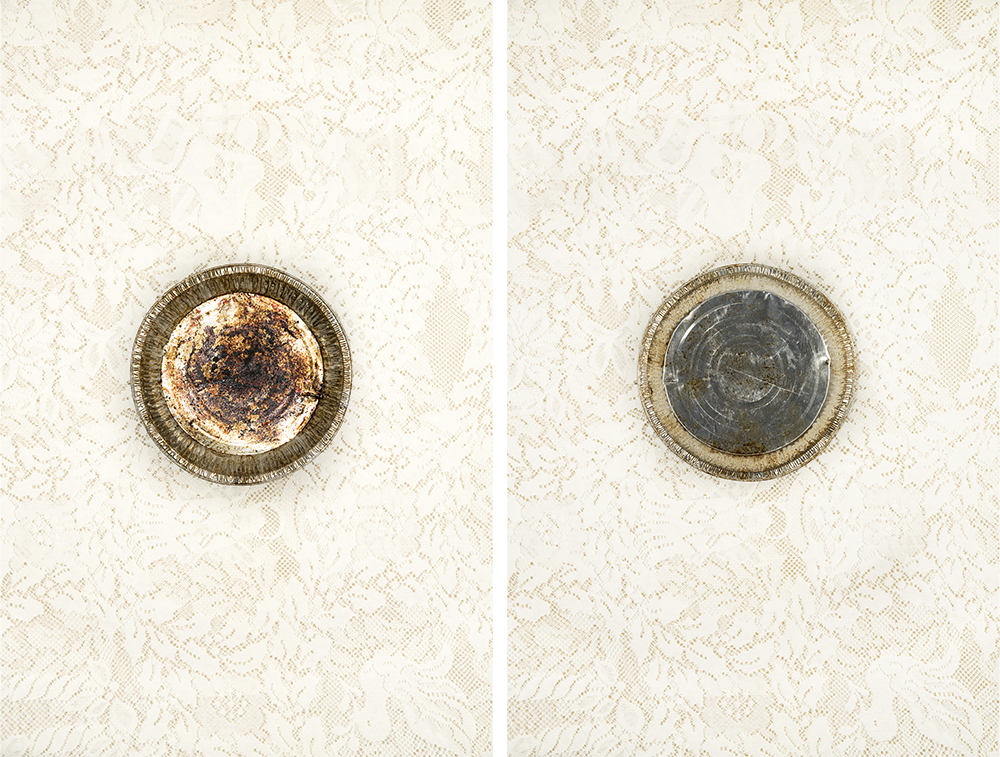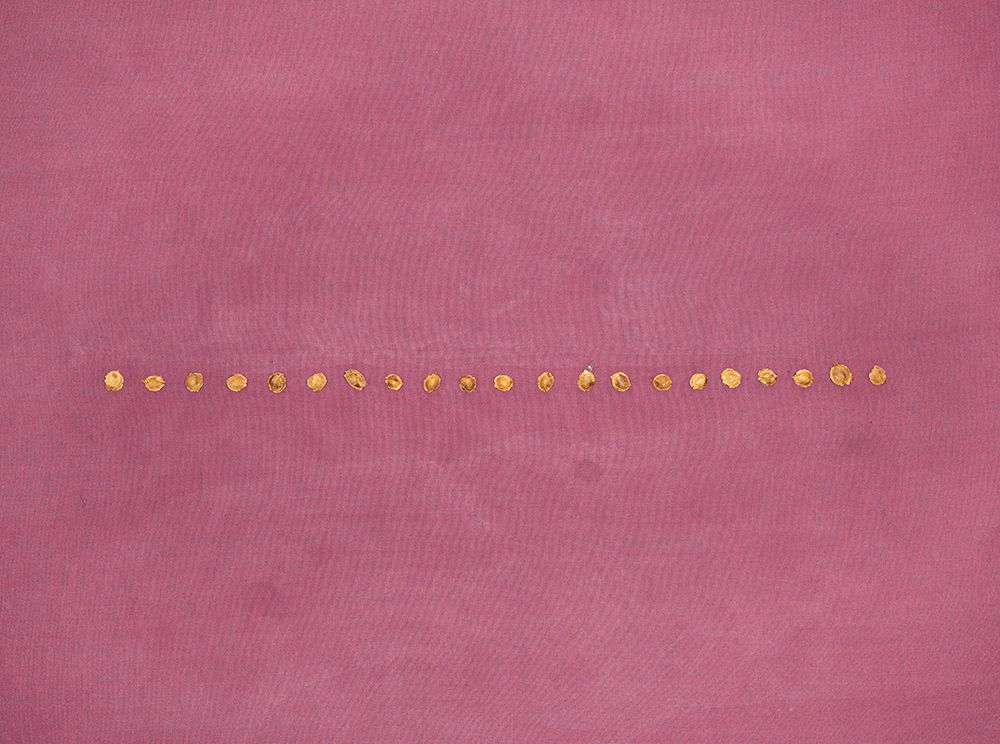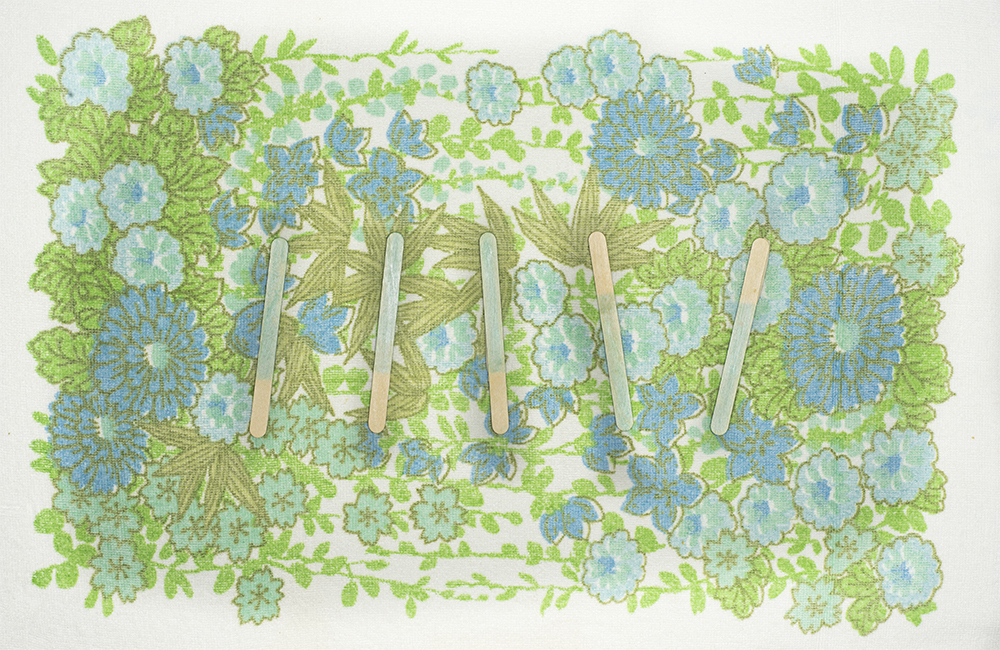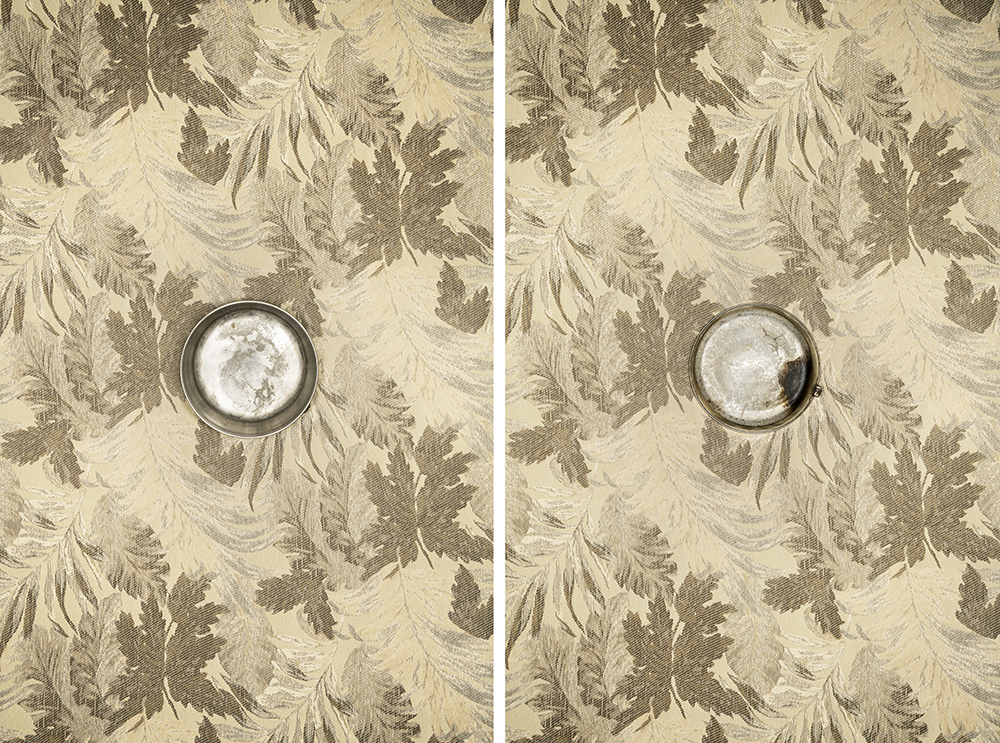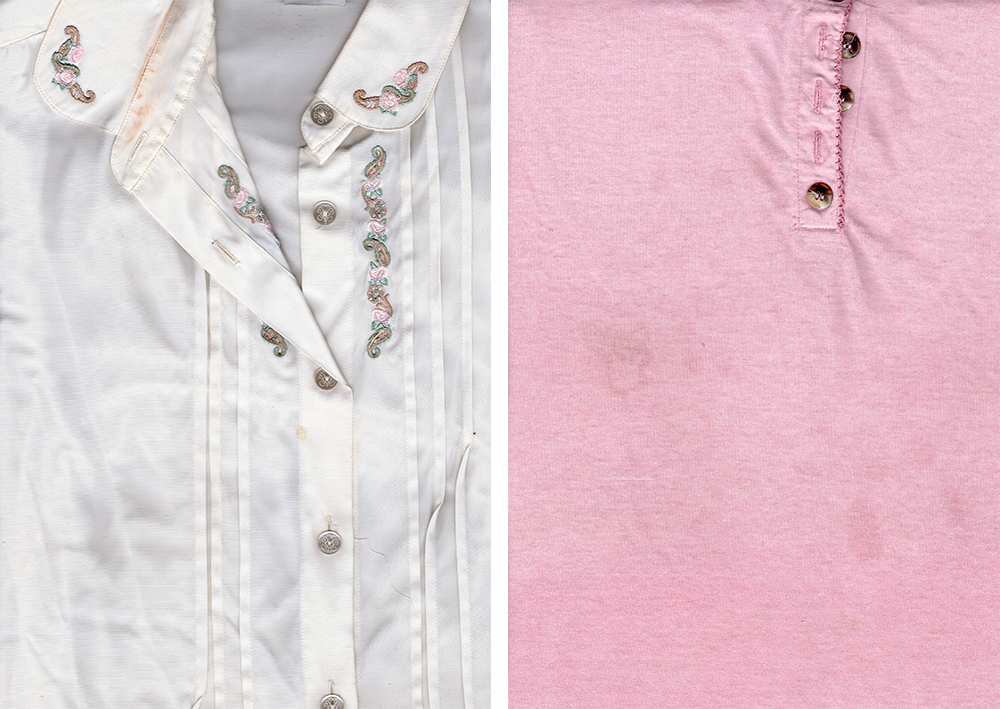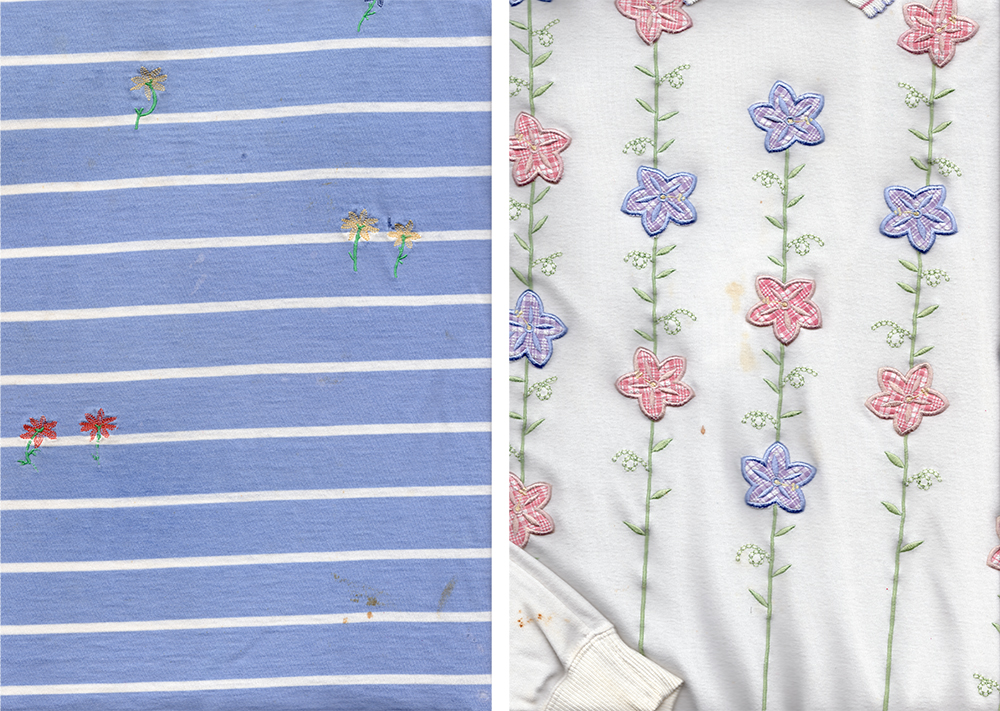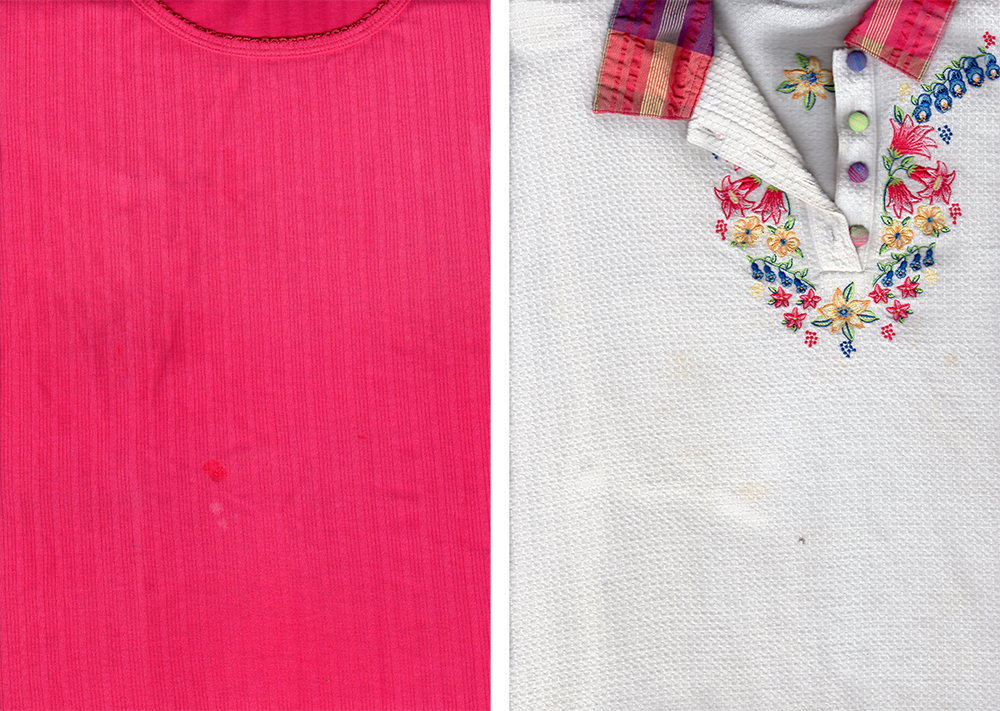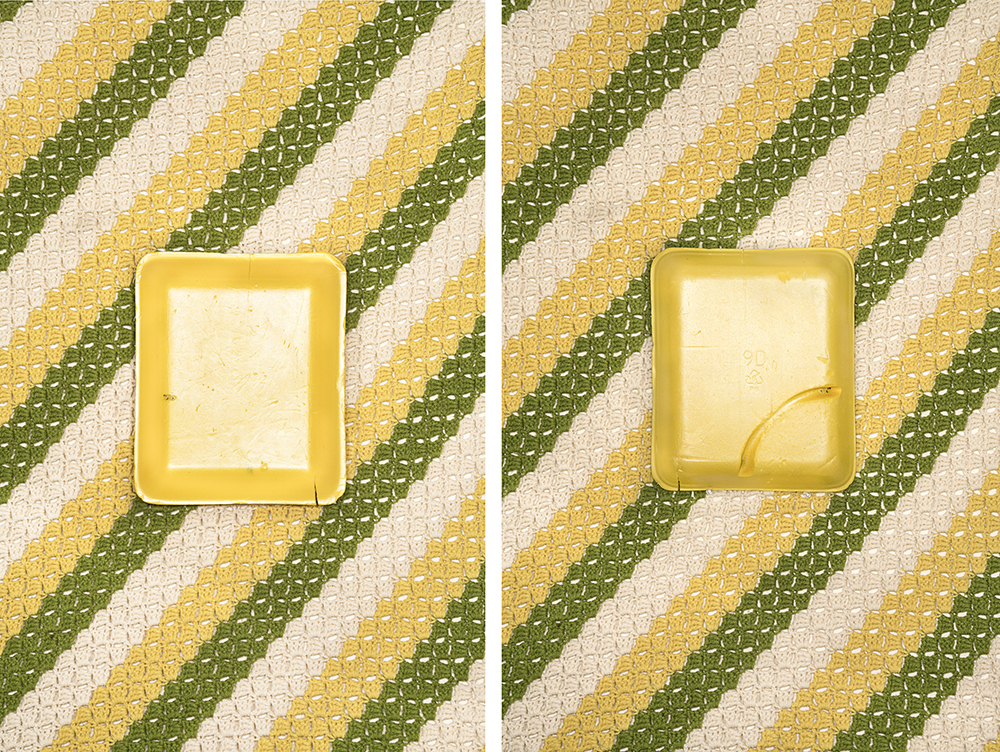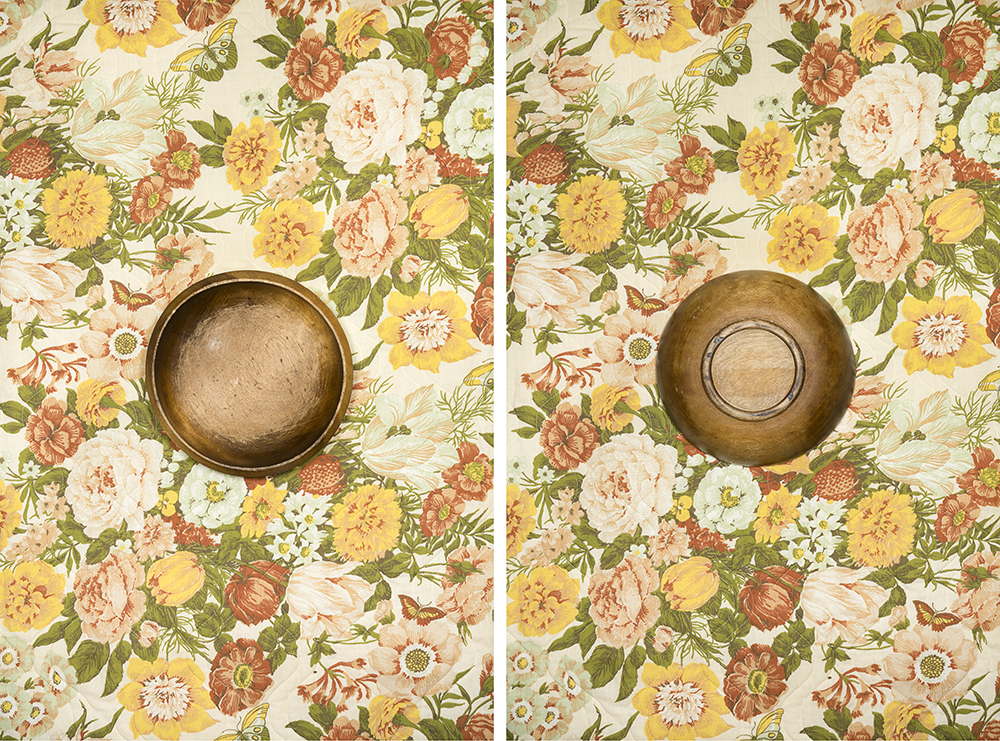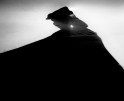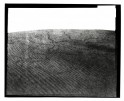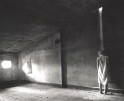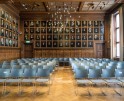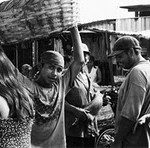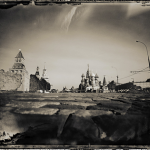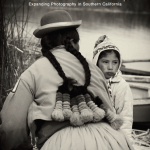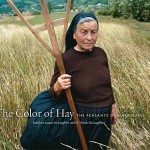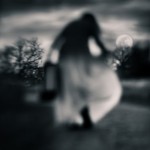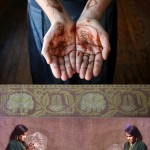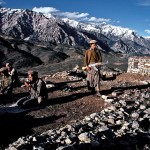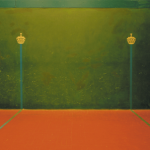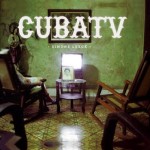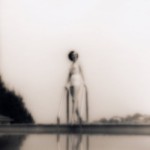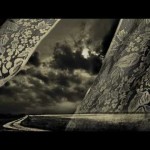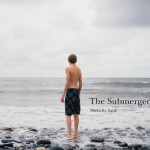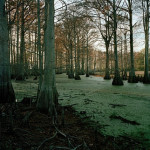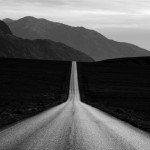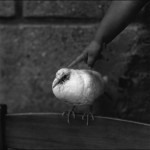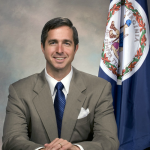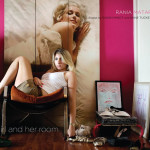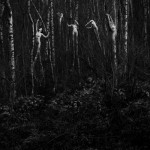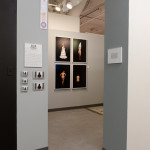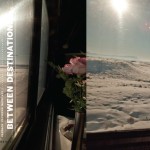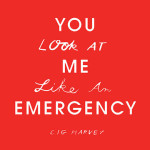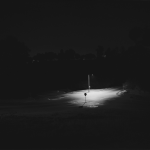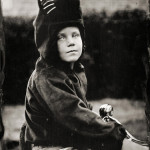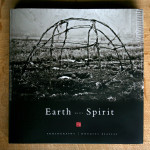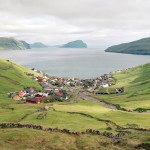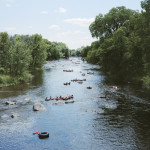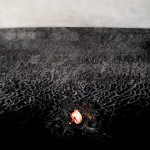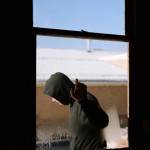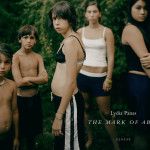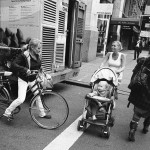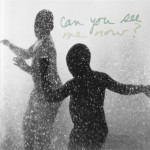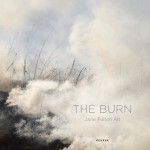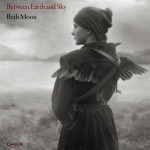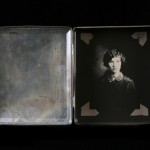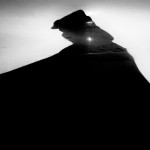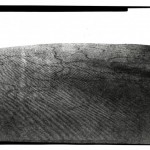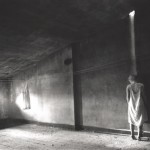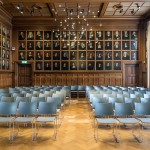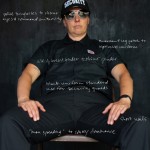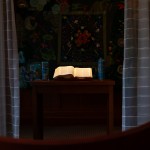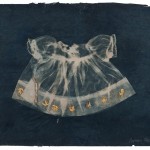Photographers on Photographers: Ashley Craig on Amber Eckersley
We draw our inspiration from a multitude of places, people, and things. I draw mine from the south. I am continually searching for photographers making work about the south, and lucky me I met Amber. We met prior to her graduation at SPE’s during the portfolio reviews, I was excited by her work and its possible avenues.
Amber Eckersley’s work takes me back to those warm nights spent on my grandmother’s swing set eating pecan pie. While her work primarily explores themes of memory, I see her work and specifically her exploration of food to be most thought provoking. Food is an extremely important part of southern culture and recipes are currency. Listening to Grandma Betty telling us her recipes, seeing the stains, the love on her clothing is something that makes my heart smile. Listen to Grandma Betty, feel the love, the years in her voice and maybe even follow a recipe.
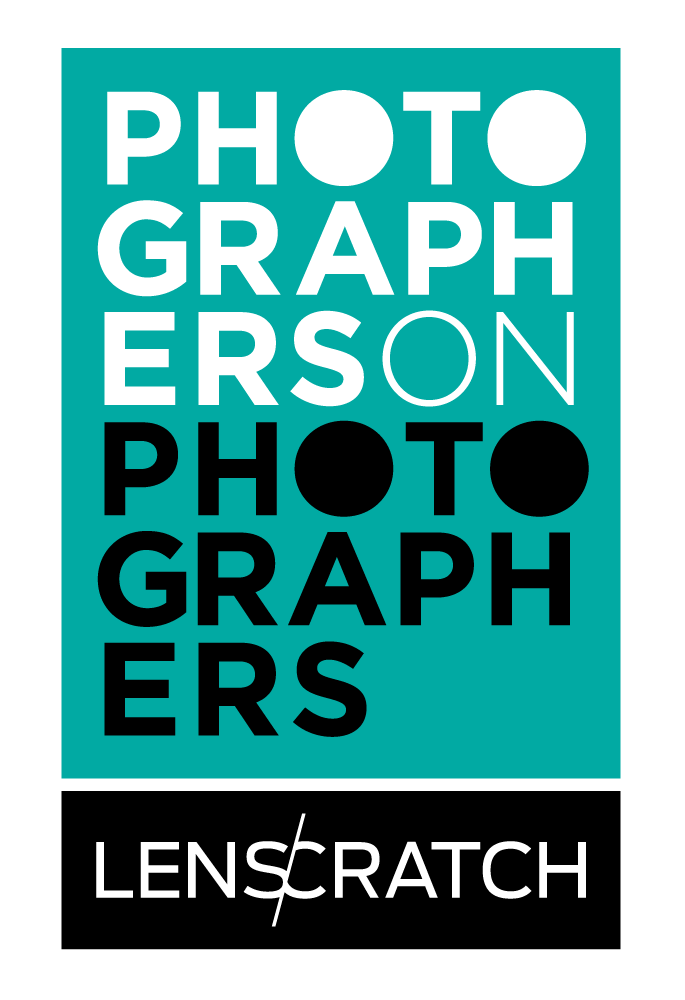 Ashley Elizabeth Craig is a southern artist and educator who recently relocated back to her hometown in South Carolina. Her work explores the delicate nuances of a southern upbringing. She received a BMA from the University of South Carolina and her MFA from the Savannah College of Art and Design. She has taught at the Savannah College of Art and Design, the University of South Carolina, Miami International University of Art and Design (MIUAD), Barry University and Maine Media Workshops + College.
Ashley Elizabeth Craig is a southern artist and educator who recently relocated back to her hometown in South Carolina. Her work explores the delicate nuances of a southern upbringing. She received a BMA from the University of South Carolina and her MFA from the Savannah College of Art and Design. She has taught at the Savannah College of Art and Design, the University of South Carolina, Miami International University of Art and Design (MIUAD), Barry University and Maine Media Workshops + College.
Ashley is co-founder of Ticka-Arts, a non-profit designed to assist in the development and growth of the photographic based artists. We strive to encourage artists to seek out opportunities that will challenge, expand, and nurture their artistic pursuits. She is an active member of the Society of Photographic Educators and is a Corporator at the Griffin Museum of Photography. Ashley also works as an independent curator for both graduate and undergraduate exhibitions with various Universities, Colleges and photographic organizations.
Amber Eckersley, born and raised in Conway, SC, received her MFA in Visual Arts from Clemson University in 2017 and her BA in History from Coastal Carolina University in 2014. She is currently an adjunct instructor of photography at Greenville Technical College in Greenville, SC and at Lander University in Greenwood, SC. Throughout 2018 and 2019, Amber will be exhibiting her most recent work, Leftovers, in a solo show at the University of Alabama – Huntsville and in two-person shows at the York County Arts Council Dalton Gallery in Rock Hill, SC and the Bertha Lee Strickland Cultural Museum in Seneca, SC. Amber’s series of scans, Stained Shirts, can also been seen at the Clemson One Building, in Greenville, SC. Amber’s work is strongly influenced by her experiences growing up pulling weeds with her mother, hunting with her father, and canning tomatoes with her grandma in the unrelenting humidity of South Carolina summers. Her work explores themes of memory and residue, utilizing various mediums including photography, scanning, video, and audio.
Ashley Craig: Tell me a little bit about yourself and what it was like growing up in Conway South Carolina.
Amber Eckersley: I grew up as an only child living next door to my grandma in a rural community. I spent a lot of time with her, especially during the summer. My cousin also spent her summers at our grandma’s. But, Grandma wasn’t one to let us sit around all day. She liked to put us to work. In the mornings before it got too hot, we would take baskets and grocery bags to her garden (and everyone else’s garden she looked after) to pick vegetables. The afternoons were spent cleaning and preserving those vegetables. Green beans, collards, tomatoes, corn, okra – you name it, she grew it. I remember one summer, her brother (my great uncle) planted rows and rows of corn. We sat outside in the middle of summer with half of the other grandma’s in the neighborhood shucking, silking, and blanching corn for weeks.
AC: Who are you influenced by both photographic or other?
AE: Well, my grandma, of course. But, beyond her, I feel like to answer this question, I’ve got to mention Sally Mann. I haven’t been thinking about her work recently, but she was one of the first photographers with whose work I really connected. More recently, I’ve been spending a lot of time with Miriam Schapiro’s work and Irving Penn’s still life work.
AC: Your work deals with memory and childhood and revolves around your grandmother. Is the work more of a document of her or is it about more complex family dynamics?
AE: It’s both. My original reasons for making this work were pretty simple. I thought, “I love my grandma and I love food, so that’s what I’m going to make work about.” She has been an inspiration for me and a starting point for much of my work. So, in some way, I think that the work will always be a document of her – at least for me. But, it’s more than that. It’s also about, as you mentioned, complex family dynamics and the role that women have historically fulfilled (whether by choice or expectation) in a family. From my experience, I have found that, in many ways, the South is a matriarchal place. I think of these images as evidence, or proof. Proof of a life lived. Proof of the life of my grandma and folks like her from this place and the histories they have and share.
AC: Would you say you grew up in a matriarchal household?
AE: Absolutely. The women in my family, and certainly my own mom, are without a doubt the leaders of their households. And my grandma and her home are the gathering points for our whole family.
AC: The recordings of your grandmother are lovely, what future plans do you have for this work? Have you made any of her recipes??
AE: I’ve been thinking about these and listening to them for a while. I think this is the beginning of a larger and lengthier project of recording and collecting recipes from other folks, perhaps focusing on one specific recipe. And it might be pound cake because my grandma’s is the absolute best. I’ve tried to make it a few times, but it’s just never quite the same as hers.
AC: The recordings of your grandmother are lovely, what future plans do you have for this work? Have you made any of her recipes??
AE: I’ve been thinking about these and listening to them for a while. I think this is the beginning of a larger and lengthier project of recording and collecting recipes from other folks, perhaps focusing on one specific recipe. And it might be pound cake because my grandma’s is the absolute best. I’ve tried to make it a few times, but it’s just never quite the same as hers.
AC: The South has a long history of sharing and preserving our cultural history orally. Do you see your recordings as return to this type of archiving/storytelling?
AE: Yes, definitely. She has all of her recipes memorized. She wasn’t reading from recipe cards or anything when I recorded her, which was just incredible to me. In fact, I’m not sure that many of them are actually written down. This work has made me think about recipes and how we collect them. The quality of her voice in the recording and her pauses while she tries to recall measurements create an atmosphere that can’t be replicated through a hand written recipe.
AC: What’s next? Would you like to continue exploring your family as a subject matter or are you looking into other subjects?
AE: I think that my family and experiences growing up in the rural South will always influence my work to some extent. I’m currently in the process of expanding Leftovers. That series may eventually break into different chapters or evolve into separate projects. Beyond that project, I’ve been thinking and doing research on gas station food. I’ve been inspired by fresh wraps (a rural gas station delicacy consisting of Hillshire sausage wrapped in a piece of white bread with a spread of mayonnaise) and lengthy conversations with friends who have a special place in their heart for gas station food.
Posts on Lenscratch may not be reproduced without the permission of the Lenscratch staff and the photographer.
Recommended
-
Jonathan Silbert: InsightsFebruary 19th, 2026
-
Olga Fried: Intangible EncountersFebruary 18th, 2026
-
Anne McDonald: Self-PortraitsFebruary 17th, 2026
-
Review Santa Fe: Leslee Broersma: Tracing AcademiaFebruary 11th, 2026
-
Review Santa Fe: Ilana Grollman: Just Know That I Love YouFebruary 10th, 2026

